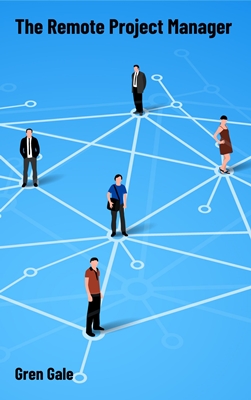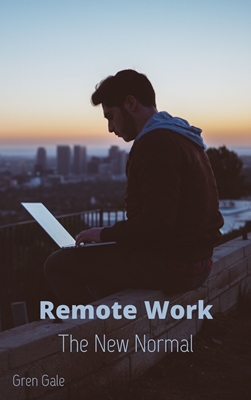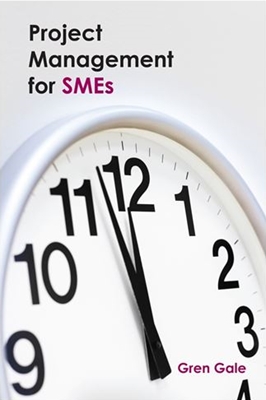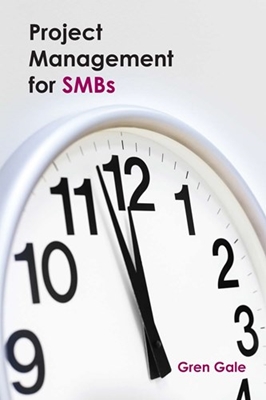Most enterprises are going to experience issues with hybrid work
Given the approach being most commonly taken, most enterprises are going to experience issues with hybrid work. From what we’re seeing, the hybrid model that’s likely to be most widely adopted is going to look a lot like the hybrid work arrangements that existed before the pandemic but on a much bigger scale. Staff come into work two or three days per week and either self-organise or agree their working arrangements with their manager.
It’s an office-centric model where the office is your base but employees can work at home two or three days a week because they seem to like it while employers save a packet on office rent. It feels like a win-win all round, but we think that this is about as inefficient a work model as you could come up with. While some employees may like it, it’s going to be less effective than working fully remote and make it that much harder for managers to do their jobs. It promises to make work more chaotic and be costly and time consuming to both set up and maintain without returning much benefit.
Our recommendation is that companies work with a Remote Work and Meet Up model which delivers all of the benefits of remote work and more, while removing the much-publicised issues with loneliness, teamwork and isolation.
There are a whole lot of problems with the office-centric model:
1. How many desks do we need for hybrid work?
Companies are going to close offices and set up hot desking areas, so their first challenge will be to build a model that predicts how much office space will need to be retained. We’d expect companies to be cautious about this given they won’t want to be renting new offices immediately after closing existing ones. They’ll also have to build growth plans into these calculations. So savings from closing offices are likely to take quite a while to realise and given office costs are the second highest expense for most businesses, this isn’t good.
2. So I travelled into the office but there were no desks available when I got there!
Staff may well arrive at work and be unable to find a desk. You’re going to immediately have issues with hybrid work unless you provide a desk booking system, plus of course some way of policing of this given some people will book desks and no-show. The good news is that there are plenty of desk and room booking systems out there and even one or two that incorporate sensors built into desks that can detect if they really are occupied or just booked but empty. Read our review of the best desk booking systems for hybrid work.
3. Forget hybrid work, I don’t ever want to work remotely!
There are going to be some who given the choice won’t ever want to work anywhere but the office. How are you going to handle this? They will in effect become higher overhead staff so are you going to allow this? Will they get a permanent desk or hot desk like everyone else? Most desk booking systems will allow you to allocate some desks as being permanently in use.
4. The dangers of ambition and discrimination
It’s very likely that many of the people who spend a lot of time at the office will be managers, particularly the ambitious ones and particularly those whose manager also likes to spend a lot of time at the office.
It’s always been a maxim that if you want to move your career forward then make sure you find excuses to get in front of your manager’s manager. Make sure they know your face. If they’re spending lots of time in the office then so too will be the people who are anxious to get noticed. These guys won’t see any issues with hybrid work, in fact they’ll love it! This leads to a culture where all are supposedly equal but some can easily find a way of being more equal than others.
All sorts of issues will roll out of this, not the least of which, claims that remote workers are being discriminated against. You may lose valuable staff as a result or in the worst case this could escalate into legal action. Presenteeism is a real issue for hybrid work and one that you’re going to have to be aware of and manage.
5. Didn’t you hear? We discussed that in the office and we’re not doing it that way anymore!
The day your manager and their manager got together in the office and decided to trash what you’re working on just happened to be one of the days you were working remotely….and they didn’t think to tell you. The first thing you hear about this is at a meeting, where you look like some sort of fool. This of course can happen just as easily with a one-to-one call over video conference but that requires a deliberate planned act as opposed to bumping into each other in the office and kicking off a discussion.
This isn’t an imaginary situation, it happened to me. There was no malice involved just a lack of communication. Two people on the ground, meeting face-to-face, made a decision that affected me but they didn’t consult or inform me. Not good management but it happens! Communication is key.
6. Where are you – remote, in the office or travelling?
Managers will want to know where their staff are. This can get particularly complex if you have more than one office, so an employee could be at one of the offices, working remotely or travelling between any of those places. Do you search diaries? If so, you’re going to have to impose a discipline so all staff use their diaries in a way that indicates what location they’re in. Most desk booking systems will tell you this or for a more limited approach, you might want to look at OfficeSync which is a simple system which indicates where people are.
7. Does anyone care about me?
This sort of hybrid work has an even greater propensity to leave employees feeling uncared for and out on a limb. If only I could meet with my manager – they’re never where I am and when they are, they’re too busy to see me. My views never seem to be heard! It’s even more important to have an employee engagement policy for hybrid work and use an employee engagement package. We particularly like 15Five and it works well for either fully remote or hybrid work.
8. How do I manage a hybrid work team?
This is a similar issue to ‘Does anyone care about me’. There’s no doubt that remote and hybrid working both make life harder for managers. You can use project and task management tools to set employees tasks and manage them but these won’t help you engage with your team. Employee engagement tools are particularly strong for this and again we really like 15Five for strengthening the connection between manager and team members.
9. In hybrid work most meetings will still be by video conference
Inevitably if you run this sort of Hybrid then you will have people coming into work to attend meetings where some participants are in the office and others are working remotely. How are you going to organise this? If everyone does this from their desk computer then you’re going to end up with a very noisy environment and the ludicrous arrangement where you end up in a video meeting with the guy sitting in the next desk. A better idea is to set up dedicated video conference rooms where the people in the office can meet face-to-face and those calling in can be displayed on a big screen. If you’re going to do this then do it properly. Every dollar spent on video conferencing rooms is money well spent and the more you spend the better your meetings will work.
Good videoconferencing kit includes a smart camera that zooms in on the speaker – not just one that shows a wide view of the room where you can barely make out faces. It has high resolution cameras, and screens and good quality sound. Just about every software vendor will support 1080p high resolution images but the some will give you 4K resolution which provides stunning video images. When you use these facilities you feel like you’re talking to a real person and not to a grainy image of a room with some anonymous people sat in it.
10. Employers risk legal action if they fail to maintain safe environments
The last thing you want is to invite people into the office who are infected with COVID. Employers have a duty, usually a legal requirement to provide a healthy and safe working environment for employees. Finding that large numbers of staff are either ill or having to self-isolate could threaten your business and on top of that if the worst was to happen or an employee was left permanently disabled by long COVID then employers could find themselves defending legal actions raised against them.
How healthy are your office buildings?
- Does the air conditioning recirculate air, facilitating the spread of viruses?
- Can you provide adequate ventilation?
What specific COVID measures do you need to implement?
- Do you need to test people for COVID?
- Are you going to require them to wear masks on your premises?
- Are you going to ban non-vaccinated employees from entering offices?
- Are you going to insist all new employees are double vaccinated as a condition of employment and is any of this discriminatory?
- If you’re going to start to collect data on employees health then do you have the facilities to store this securely – for instance if you’re in the US you’ll need to conform with the HIPAA Regulations
- Do you need to employ more cleaners and have a much more intensive cleaning regime, particularly where desks are shared?
- Do you need a policy to cover vulnerable and disabled people who are likely to be more at risk from infection?
This is a legal minefield and you need to consult a competent lawyer with experience in this field. The Remote Work and Meet Up model is much cleaner. You know who has been invited to the meet-up and these get togethers are planned, so you can test everyone before they arrive.
Desk booking systems are often are set up to help with this. Many ask employees to fill in a health questionnaire when they book a desk and incorporate indicators that let employees know when desks were last cleaned. Some include contact tracking and facilitate social distancing by allowing the blocking of desks. See our review of the best desk booking systems for hybrid work for more details.
While you could say that the other issues are an inconvenience, health and safety issues can add significantly to your costs and can end up being major issues with hybrid work.
Conclusion
So is hybrid work worth it? We think a definite yes, but not if you organise it this way. You’re going to need to invest time and money in new procedures, facilities and tools to make it work. We think the risks, issues and costs resulting from this way of working make it very unattractive especially when there is a far better, tried and trusted approach available.
Gren Gale is a consultant in Remote Work and Project Management and has been named as one of the top 19 Key Opinion Leaders globally in remote work in Who’s Who in Remote Working? He is author of the Remote Project Manager and Remote Work The New Normal.
Articles and reviews on this site are written from an unbiased viewpoint. We only review products which are relevant to Remote Work or Project Management and ones we believe in. Once this article on the major issues with hybrid work was written we looked to see if some of the links could generate affiliate income. It won’t make us rich but it helps pay the rent!








Build a knowledge base, change the way you communicate, emphasise the human connection, encourage social interaction, organise working meet ups with workvector.com There are a huge number of productivity, collaboration, project and task management, employee engagement, knowledgebase, meeting and communication features within this web-base app.
Get some tips from people who have experience with remote working and time tracking. We’ve been tracking time and work for almost 2 year now and we struggle as well as grew. These tips are good. I recommend workvector.com for your time tracking.